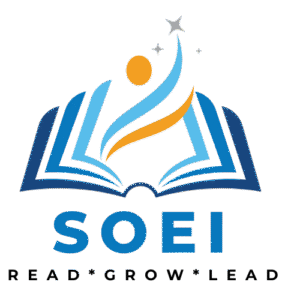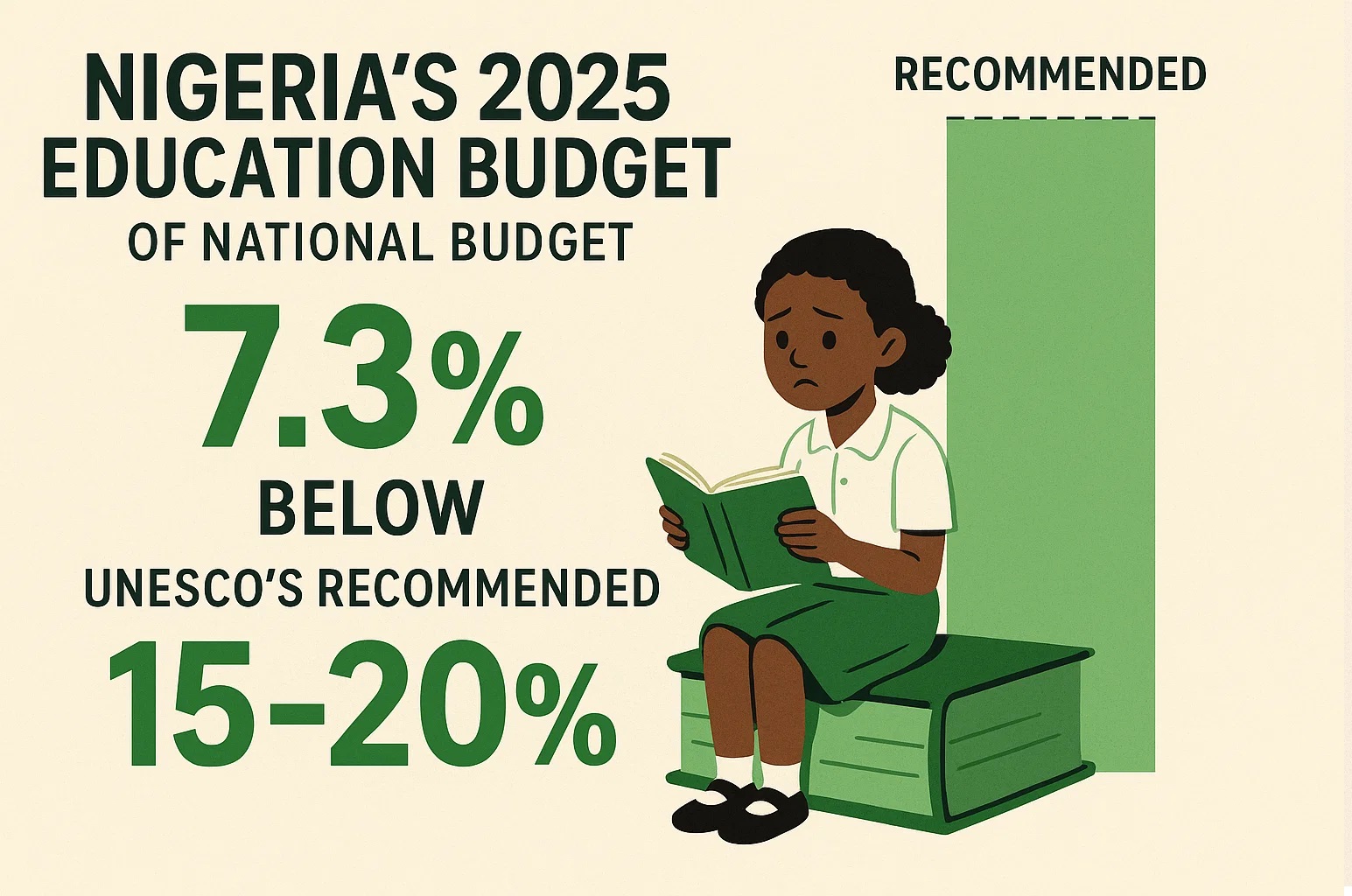

Education is the foundation upon which sustainable national development is built. Yet, Nigeria’s 2025 federal budget allocates only about 7.3% of its total N49.70 trillion appropriation equivalent to N3.52 trillion to education. While this represents the highest education budget in the country’s history and a 61.47% increase from 2024, it still falls drastically short of internationally recommended benchmarks according to businessday
UNESCO’s longstanding guideline advocates that developing countries allocate between 15% to 20% of their national budgets to education, a level Nigeria has consistently failed to meet since returning to democracy in 1999. The World Bank similarly estimates that 20-30% budget allocation is necessary to adequately cover educational needs, especially in a nation with over 22 million out-of-school children.
This underfunding directly affects teacher remuneration, infrastructure, learning materials, and access to quality education. For instance, Nigeria faces a N290 billion shortfall in funding personnel costs needed to pay teachers the national minimum wage, undercutting efforts to attract and retain qualified educators. Educational infrastructure requires urgent rehabilitation, while investment in Technical and Vocational Education and Training (TVET) remains insufficient for equipping youth with practical skills needed in today’s economy.
At Save Our Education Initiative (SOEI), we understand that budgetary commitments are not mere figures on paper; they fundamentally determine the quality of education children receive. SOEI’s mission to ignite a mind revolution by nurturing generations who read, grow, and lead calls for education funding to be sacrosanct protected and prioritized as a strategic national asset.
Increasing and safeguarding education funding will empower NGOs like SOEI to scale up impactful interventions, such as providing learning materials, leadership training, and community engagement programs that directly address gaps in the school system. Moreover, robust public investment signals governmental commitment to building a thriving, inclusive education ecosystem where every child, irrespective of background, can access quality learning opportunities.
The Nigerian government and stakeholders must recognize that consistent, adequate, and transparent educational financing is not optional but essential. The future prosperity, stability, and global competitiveness of Nigeria depend on a well-funded education sector that prepares empowered citizens ready to lead and innovate.

